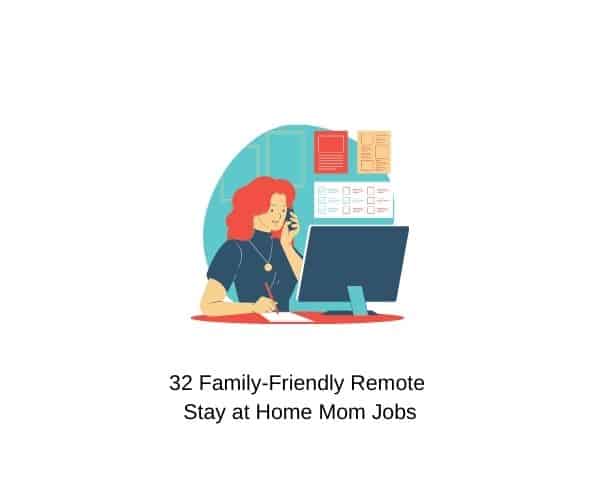17 Work from Home Safety Tips for Remote Workers
Work from Home Safety Tips to Keep You Safe and Healthy
According to the National Safety Council, working from home leads to twice as many injuries as working in an office. In this blog post, we will discuss 17 work from home safety tips for remote employees that will help keep you safe and calm while you’re working.
Working from home is becoming more and more popular, as people are looking for ways to cut down on commuting time and save money. While there are many benefits to working remotely, it can also be dangerous if you’re not careful.
Still looking for your remote career? Find remote jobs that are hiring now.
Disclaimer: This post may contain affiliate links. This means that I may earn a commission if you make a purchase through my links. This is at no extra cost to you. View our full disclosure here.
17 Tips for Staying Safe While Working from Home: Workplace Safety Checklist
These work from home safety tips are an ideal place to start when beginning a remote career.
Establish a dedicated work space
Working from home can be tempting to do from your bed, the kitchen table, or the couch, but this can lead to back pain and other injuries. Instead, establish a dedicated work space in your home where you can sit down and focus on your work. This will help to prevent any aches and pains that come from working in an uncomfortable position.
Get up and move around
It’s important to take breaks when you’re working from home, even if it’s just for a few minutes at a time. Getting up and moving around will help to keep your blood flowing and prevent stiffness. Go for a walk around the block or do some simple stretches to stay active while you’re working.
Stay hydrated
It’s easy to get dehydrated when you’re focused on your work, so make sure to drink plenty of water throughout the day. Keeping a water bottle at your desk will remind you to stay hydrated and help you stay healthy.
Take breaks
Taking frequent breaks is important for both your physical and mental health. Take a few minutes to yourself to relax and rejuvenate. This will help you avoid burnout and keep your energy levels up.
We recommend using the Pomodoro Timer. This lets you work for 20 minute intervals, then take 5 minute breaks. It helps me stay focused and on task while working from home, and reminds me to take a break.
Eat a healthy, well-balanced diet
It can be tempting to snack on unhealthy foods when you’re working from home, but this will only make you feel sluggish and impact your productivity. Make sure to eat healthy meals and snacks throughout the day to keep your energy levels up.
Stay organized
A cluttered work space can lead to distractions and make it harder to focus on your work. Take some time to organize your desk and create a system that works for you. This will help you stay productive and avoid any unnecessary stress.
Avoid distractions
When you’re working from home, it’s important to avoid any distractions that can impact your productivity. Turn off the television, put away your phone, and close any tabs that you’re not using. If you need to, set a timer for yourself and take breaks in between tasks to avoid getting overwhelmed.
Set boundaries
Working from home can be tempting to do all hours of the day, but it’s important to set ground rules for yourself. Make sure to take regular breaks and give yourself time to relax outside of work. This will help you avoid burnout and maintain a healthy work-life balance. Make sure to make work hours and try to stick to them.
Communicate with family members
If you have children or pets, it’s important to communicate with your family about your work schedule. Let them know when you’re working and when you’ll be available so that they can respect your time and space. This will help you stay focused on your work and avoid any distractions.
Ask for help
If you’re struggling to manage your work from home setup or having a technical problem, make sure to contact the IT department at your company. They can help you solve any technical problems with your work devices and keep you on task.
Keep your devices safe from hackers
Another safety consideration is keeping your computer and other devices safe from cyber criminals. Be sure to use strong unique passwords and encrypt any sensitive information.
While it may be tempting to use the same password for all of your accounts, this is a security risk. If one account is hacked, all of your other accounts are at risk as well. That’s why it’s important to use different strong passwords for each account, and to make sure those passwords are strong.
You may want to enable two-factor authentication on accounts that offer them. You may also want to consider using an antivirus software and virtual private networks (VPN) to further secure your connection. A VPN encrypts your internet traffic, making it much harder for hackers to intercept your data.
Use an ergonomic work chair
Invest in a good office chair with adequate back support. This will help you avoid back pain and keep you comfortable while sitting for long periods of time.
Work in a well-lit space
Make sure your work area is well-lit and that your computer screen is at eye level. This will help you avoid eye strain and headaches.
Protect your computer equipment
If possible, invest in a surge protector for your computer and other electrical equipment. This will help prevent damage from power surges caused by thunderstorms or other events. Back up your files regularly so you don’t lose important data if something happens to your computer equipment.
Extension cord precautions
When working from home, it’s important to be aware of the potential hazards that can come with using extension cords. If extension cords are not used properly, they can pose a serious fire hazard. Be sure to follow these tips when using extension cords in your home office space:
1. Never overload an extension cord by plugging in too many devices.
2. Do not place extension cords under rugs or furniture where they can be damaged.
3. Do not use extension cords for permanent wiring solutions.
4. Inspect extension cords regularly for signs of wear and tear, such as fraying or exposed wires. If an extension cord is damaged, do not use it and replace it immediately.
5. Make sure to keep extension cords organied to avoid trip hazards and ensure safe work environments.
Keep a fire extinguisher handy – One of the most important work from home safety tips
In the event of a fire, having a fire extinguisher close by can help you put it out quickly and prevent it from spreading. Make sure your smoke alarms are running correctly.
Install a carbon monoxide detector
Carbon monoxide is an odorless and colorless gas that can be deadly if inhaled. Installing carbon monoxide detectors in your home office can help alert you to its presence and allow you to get to safety quickly.
Working from home has become increasingly popular in recent years, and it’s not hard to see why. It offers remote workers a level of flexibility and freedom that traditional office jobs simply can’t match. Working from home can be a great way to improve your productivity and save time.
However, it’s important to be aware of the potential hazards and safety concerns, and take steps to avoid them. By following these work from home safety tips, work-from-home employees can create a safe and healthy work environment in your own home.
Work from Home Safety Tips to Help You Stay Healthy as a Remote Worker








